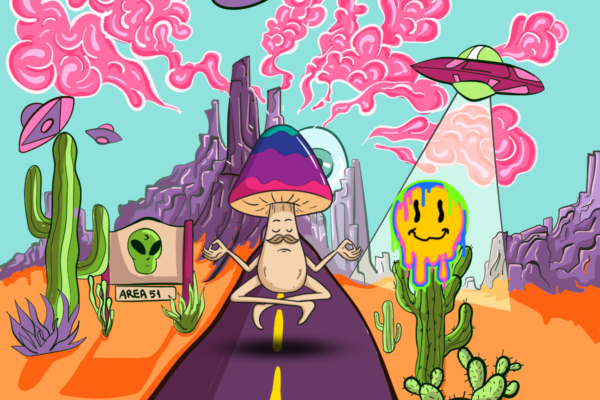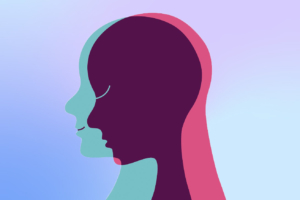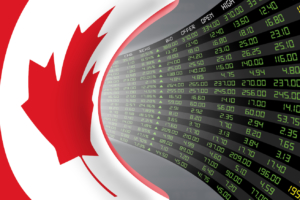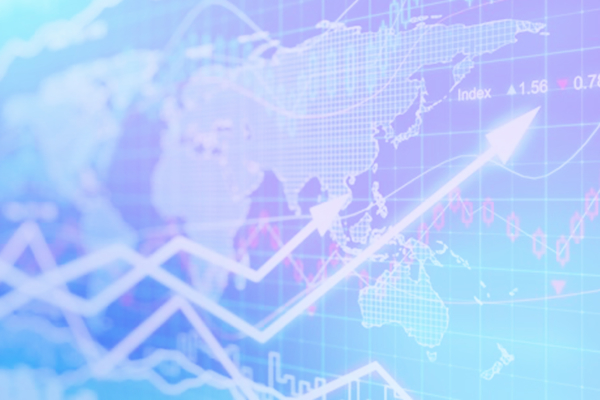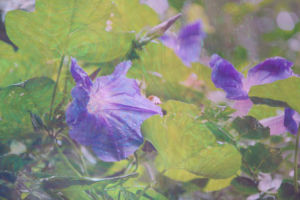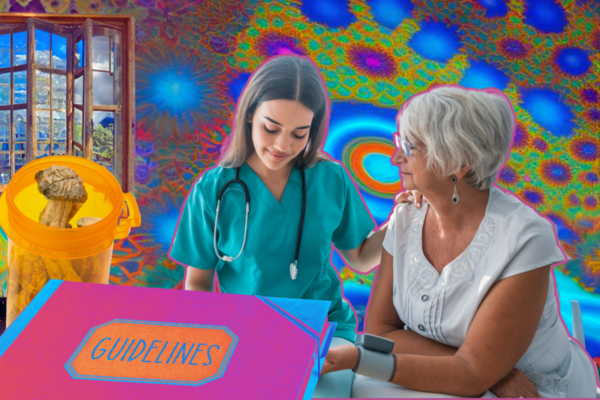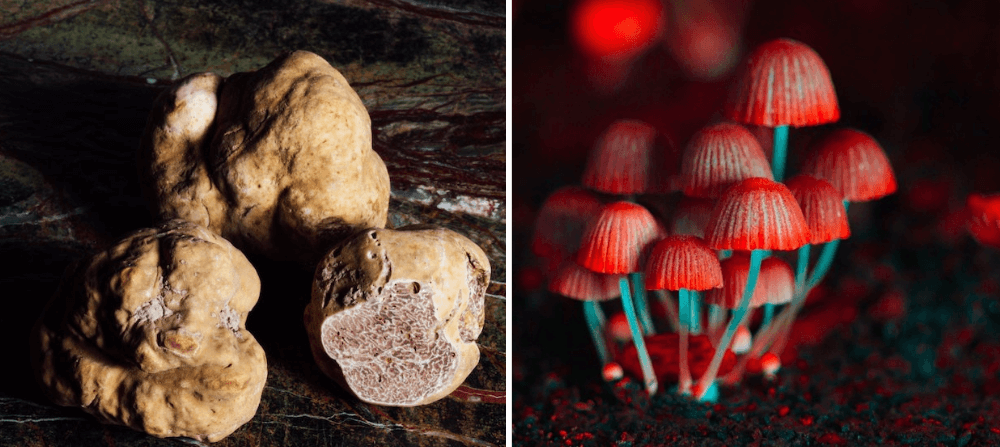
Magic mushrooms have garnered plenty of attention for their psychedelic properties in the past 50 years both in research and recreation. In more recent years, attention has begun to focus on their lesser-known cousins, “magic” psilocybin truffles.
Magic truffles are precious underground-growing fungi that contain the same hallucinogenic chemicals as their above-ground counterpart—psilocybin and psilocin. But they have a personality of their own.
Are they the same as culinary truffles?
Like mushrooms, truffles come in a variety of species—some of which are a prized culinary delicacy. But instead of their fruiting bodies popping up through the soil, like mushrooms, truffles grow underground. Magic truffles, in particular, are a type of fungus known as sclerotia, hardened masses of mycelium containing food reserves that grow underground near tree roots.
Non-psychoactive, culinary truffles are difficult to farm because they are delicate and require just the right environment to grow. Hunters often use pigs or dogs to sniff them out for harvesting. Because they are rare, delicate, and so hard to find, a single truffle can sell for thousands of dollars. And you can expect to add a C-note to your restaurant tab for a single truffle shaving over your risotto. What you get is a mouthful of delicious yet pungent, earthy flavor.
Magic truffles, on the other hand, are not prized for their flavor as much as for their psychedelic effects. Because they contain the same hallucinogenic compound as magic mushrooms, you can expect a similar experience with magic truffles. Depending on the source, some say truffles are more potent while others claim they are less so.
Unlike their delicate culinary counterparts, magic truffles are hardier and more resilient. Some farms are successfully growing and harvesting them in artificial environments. Like psilocybin, magic truffles are not legal in most U.S. states, but they have become widely available in smartshops and coffee shops throughout the Netherlands following the ban of magic mushrooms in 2008.
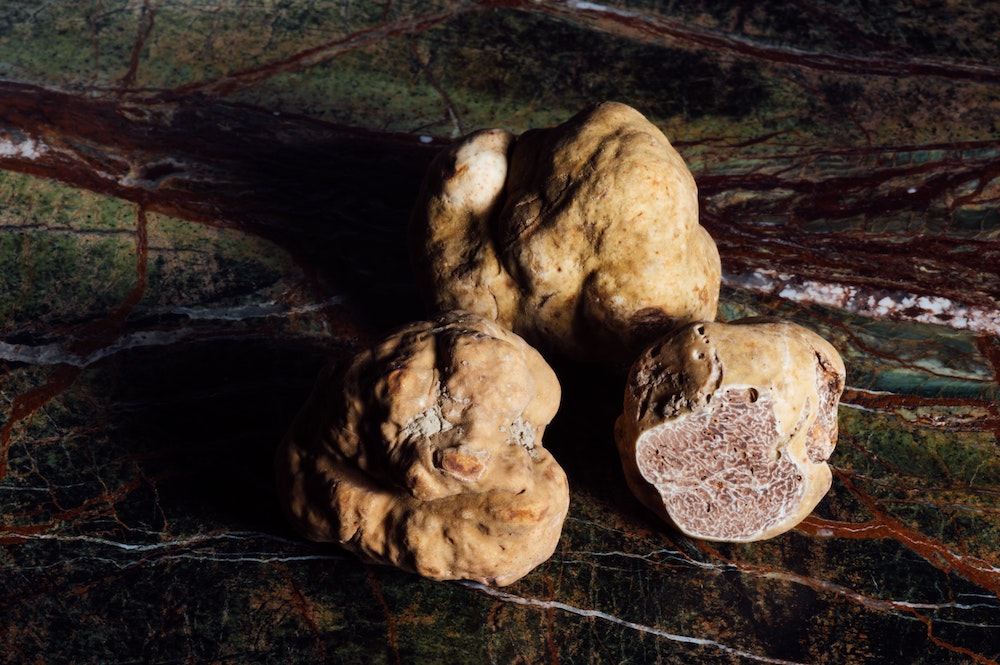
Why are psilocybin mushrooms illegal in Holland, but truffles aren’t?
To be clear, Dutch law prohibits the production, possession, sale, import and export of drugs. But the government also recognizes that it’s impossible to prevent people from using them altogether. So, the country allows smartshops and coffee shops to sell small amounts of so-called “soft drugs,” substances the country considers less risky than “hard drugs.” Banned hard drugs include heroin, ecstasy and cocaine. Legal soft drugs include hash, cannabis and, until 2008, magic mushrooms.
The country’s ban on magic mushrooms involved more than 100 different species of mushroom—a knee-jerk reaction to the suicide of a teenager in March 2007. But the sclerotium form of fungi wasn’t outlawed. And as a result, magic truffles emerged as a viable substitute to its fungi cousin.
Like culinary truffles, magic truffles are generally more expensive than mushrooms, selling for upwards of €20/gram (24 USD). Magic truffle grow-kits are available in some shops. And, Psychedelic retreats using magic truffles can also be found throughout Holland for those seeking a more ceremonial experience with the psychedelic fungi.

What are the effects of psilocybin truffles?
Most people refer to the trips as fun. Others describe them as deep and introspective. As with any psychedelic, there is a risk that you may have a bad trip. General effects of magic truffles last about 6 to 8 hours, and may include:
- Connectedness with self, the universe, nature
- Euphoria
- Peacefulness
- Spiritual awakening
- Quickly changing emotions
- Feeling detached from reality, dreamlike
- Visual alteration and distortions
- Hallucinations
- Unusual body sensations
- Distorted thinking
Psilocybin isn’t considered addictive and there are no physical symptoms of withdrawal after use. But it is possible to build up a tolerance or develop a psychological dependent to the substance with repeated, daily use.
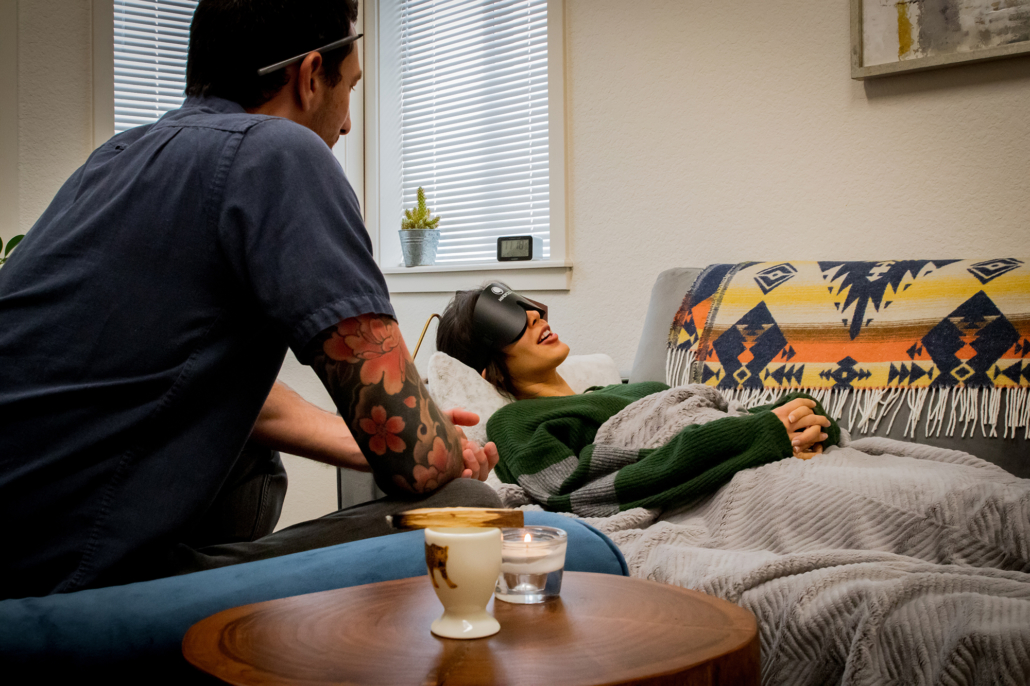
Are psilocybin truffles therapeutic?
Recent studies have found psilocybin, the psychoactive ingredient in magic mushrooms and magic truffles, to have long-lasting therapeutic benefit in treating people with depression and anxiety. Research has also shown the chemical compound helps people manage addictions such as alcohol, cocaine, and cigarettes; and can ease cancer-related or end-of-life psychological distress.
Holland-based psychedelic center Synthesis conducted surveys among retreat guests and found their experience with magic truffles improved their sleep, decreased their rumination on negativity, improved their mood, and prompted them to seek healthier lifestyle habits. Retreat-goers also reported less fear and stress, and a deeper connection to themselves, others, and nature.
And last fall, Ontario-based Red Light Holland Corp., a company engaged in the production, growth and sale of magic truffles in the Netherlands, launched a science division, called Scarlette Lillie Science and Innovation. The center secured a partnership with U.S.-based Jinfiniti Precision Medicine to explore the potential roles that psilocybin and truffles can play for age-related and psychiatric disorders.
“The idea that psilocybin and truffles have deep physiological and medicinal effects that go beyond psychiatric applications is not new, but as a scientist, Scarlette Lillie is allowing me to truly explore whole new markets, with a rigorous biomarker panel,” Dr. Joseph Geraci, CEO of NetraMark Corp. and a scientific advisor to Red Light Holland, said in a statemet. “Additionally, this work has the potential to help us understand if there are unknown mechanisms at play for neurological and psychiatric disorders.”
